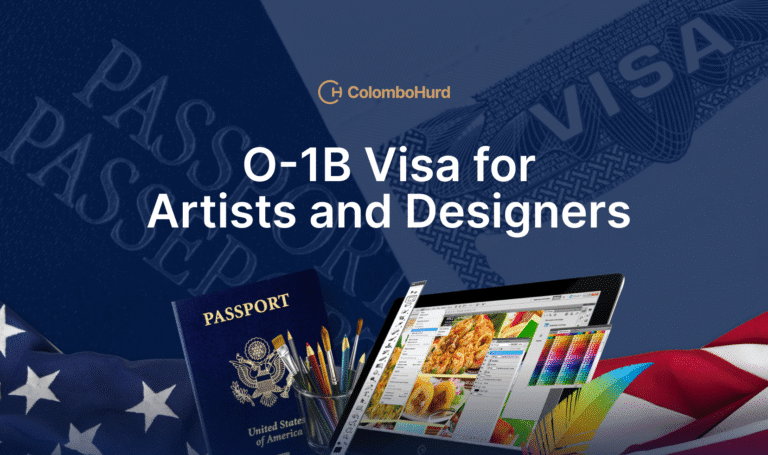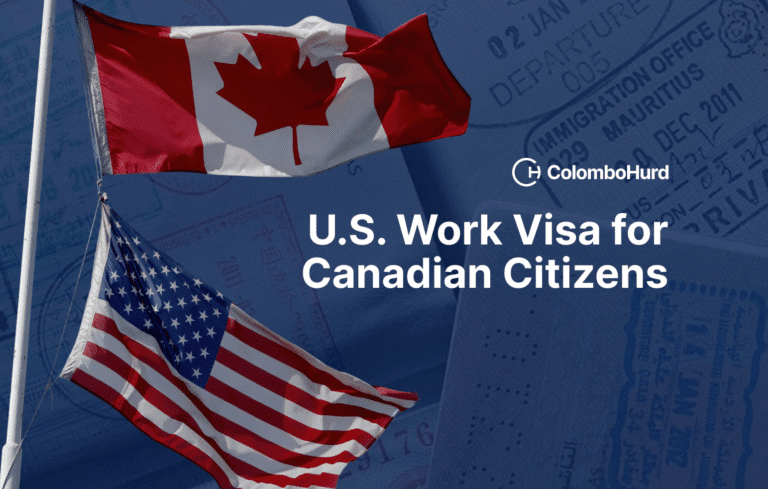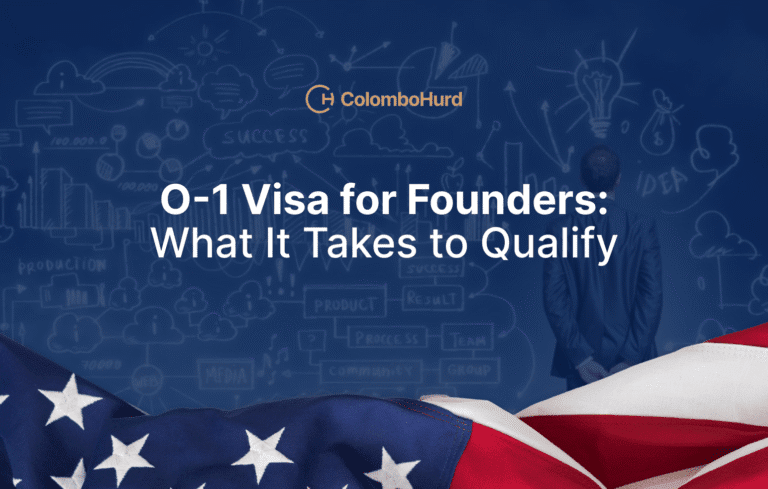
As a Mexican professional, you have access to more U.S. work visa options than citizens of most other countries. The United States-Mexico-Canada Agreement creates unique pathways for professionals, while employment-based green cards offer permanent solutions for exceptional professionals.
The right visa depends on your qualifications, career goals, and timeline. Mexican professionals can pursue self-petition green cards that don’t require employer sponsorship, temporary work visas tied to specific jobs, or investor visas for entrepreneurs. Each option has distinct requirements, processing times, and benefits.
This guide covers the primary visa categories for Mexican professionals, including current data on approval rates, processing times, and which professionals qualify for each pathway.
Understanding Your Options: Work Visas from Mexico to the US
Mexican citizens can access multiple visa categories that aren’t available to most foreign nationals. About 23% of all foreign-born persons in the U.S. are from Mexico, making it one of the country’s largest sources of professionals.
The visa categories fall into three main groups:
Self-Petition Green Cards: These permanent residence options allow you to sponsor yourself based on extraordinary ability or work that benefits U.S. national interests. You maintain control of your immigration status regardless of employer changes.
Temporary Work Visas: Non-immigrant visas tied to specific employment. These include both Mexico-specific options like the TN visa and general categories like H-1B and L-1.
Investor Visas: Pathways for entrepreneurs and investors who want to start or invest in U.S. businesses.
Self-Petition Green Cards for Mexican Professionals
Self-petition green cards represent a highly strategic immigration option because they don’t require employer sponsorship. You control your own immigration journey and aren’t dependent on a single company.
These pathways are a strong fit for professionals who value career flexibility and long-term security. Unlike employer-sponsored options, you can change jobs, start businesses, or pursue entrepreneurial ventures without jeopardizing your immigration status.
| Feature | EB-1A Extraordinary Ability | EB-2 National Interest Waiver |
| Education Required | No minimum requirement | Advanced degree (master’s+) or bachelor’s + 5 years progressive experience |
| Employer Sponsor | Not required | Not required |
| Labor Certification | Not required | Not required |
| Key Criteria | Must meet 3 of 10 criteria showing extraordinary achievement | Must show work has substantial merit, national importance, and you’re well-positioned |
| Ideal For | Top 1% in field, nationally/internationally recognized | Advanced professionals whose work addresses U.S. national priorities |
| Typical Profiles | Award winners, published researchers, high earners, industry leaders | Cybersecurity experts, healthcare innovators, STEM educators, environmental scientists |
| Visa Backlog for Mexico | None (current) | None (current) |
Strategic Note: Many professionals qualify for both categories. Your attorney can assess which pathway offers the strongest case based on your specific achievements and documentation.
EB-1A Visa for Extraordinary Ability
The EB-1A visa is designed for professionals who have reached the top of their field. This permanent residence category applies across industries, from technology and science to business and healthcare.
Who Qualifies: You must demonstrate extraordinary ability through sustained national or international recognition. This requires meeting at least three of the ten criteria, including major awards, published work, high salary, judging others’ work, or membership in exclusive professional organizations.
Industries We Serve: We work across all industries, serving technology professionals (AI researchers, senior software engineers), scientists (medical researchers, biomedical engineers), healthcare leaders (physicians, specialists), business executives, and academic professionals.
- Recent Successes: Business Leader (Colombia): After receiving an RFE, this entrepreneur secured EB-1A approval by showcasing international leadership and investment impact. He developed cross-border economic programs and drove major business growth in Latin America. USCIS acknowledged his sustained influence in global markets.
- Public Health Innovator (Zimbabwe): This physician earned approval following an RFE by proving his work significantly expanded healthcare access in underserved regions. His rural medical outreach model was adopted nationwide and inspired global public health initiatives. His leadership transformed healthcare delivery for millions.
- Sports Coach (Spain): USCIS granted approval after an RFE once the case demonstrated his extraordinary achievements in coaching and sports education. He guided athletes to national and international success and advanced inclusive training methods. His published research continues to influence physical education across Europe.
EB-2 National Interest Waiver (NIW)
The EB-2 NIW visa allows qualified professionals to obtain permanent residence when their work benefits U.S. national interests. You don’t need an employer sponsor or labor certification.
Who Qualifies: Professionals with an advanced degree or those with exceptional ability whose proposed work has substantial merit and national importance. You must demonstrate you’re well-positioned to advance your endeavor and that waiving the normal job offer requirement benefits the United States. .
Three-Prong Test: You must show (1) your proposed work has substantial merit and national importance, (2) you’re well-positioned to advance your work, and (3) it would benefit the U.S. to waive the job offer requirement.
Recent Successes:
- Energy Technology Expert (Mexico): A renewable energy technologist earned EB-2 NIW approval by showing his innovations advance U.S. energy and environmental goals. He developed novel solar and battery systems improving grid efficiency. USCIS granted the waiver, recognizing his contributions to national interest in clean energy.
- Industrial Engineer (Mexico): This industrial engineer secured EB-2 NIW status by linking process optimization projects to U.S. manufacturing competitiveness. He implemented methods that reduced waste and increased throughput in key industries. USCIS accepted his case as beneficial for national economic infrastructure.
- Structural Engineer (Mexico): A structural engineer’s EB-2 NIW petition was approved by demonstrating his designs make buildings safer in quake zones. His work integrates new materials and modeling to reduce seismic risk. USCIS recognized his role in advancing resilient infrastructure for disaster-prone regions
Strategic Positioning: Success requires demonstrating how your specific contributions address documented U.S. needs. We leverage extensive USCIS data and policy trend analysis to position cases within current national priorities.
Temporary Work Visas for Mexican Citizens
Temporary visas allow you to work in the U.S. for specific periods. Some lead to permanent residence, while others require maintaining non-immigrant intent.
O-1 Visa for Exceptional Talent
The O-1 visa is for individuals with extraordinary ability or achievement in sciences, arts, education, business, or athletics.
Who Qualifies: Professionals with sustained national or international acclaim. Requirements include major awards, significant publications, high salaries relative to field peers, or recognition from peer organizations.
Examples: Award-winning researchers, renowned chefs, technology innovators, accomplished artists, elite athletes.
Duration: Initially granted for up to 3 years for specific projects, extendable in 1-year increments.
No Cap: Petitions can be filed year-round without numerical limitations.
Recent Success: We secured O-1A approval for an international attorney specializing in complex arbitration cases, including representation in $50 billion litigation against the Russian Federation. The attorney’s track record of handling significant legal matters demonstrated the extraordinary ability required for approval.
Dual Intent: Like H-1B, O-1 visa holders can pursue permanent residence.
L-1 Intracompany Transfer Visa
The L-1 visa enables multinational companies to transfer employees from Mexican offices to U.S. operations.
Who Qualifies: Employees who have worked at least 1 continuous year within the past 3 years for a qualifying related company outside the U.S.
Two Categories:
- L-1A: Executives and managers (up to 7 years total)
- L-1B: Employees with specialized company knowledge (up to 5 years total)
Processing Time: Initial approvals typically 3 years (1 year for new U.S. offices). About 77,000 L-1 visas were issued globally in 2023.
No Annual Cap: Numbers depend on business needs.
Path to Green Card: L-1A executives and managers can transition to EB-1C green cards without labor certification.
Family Benefits: L-2 spouses can work in the U.S. (authorized since 2022).
TN Visa (USMCA Professional)
The TN visa is exclusive to Mexican and Canadian citizens under the USMCA agreement. It’s become increasingly popular among Mexican professionals, by 2023, about 59% of all TN visa holders were Mexican (up from just 14% in 2006).
Who Qualifies: Mexican citizens with job offers in one of the 63 designated professions, including engineers, computer systems analysts, accountants, scientists, teachers, and medical professionals. Most require at least a bachelor’s degree in the field.
No Annual Cap: Unlike H-1B visas, there’s no numerical limit on TN visas. The U.S. issued approximately 33,000 TN visas in 2022 to Mexican and Canadian citizens combined.
Processing Time: TN visas are known for fast processing. Mexican petitioners obtain visas at U.S. embassies or consulates, often within weeks of securing a job offer.
Duration: Initially granted for up to 3 years, renewable indefinitely.
Key Limitation: TN visa holders cannot pursue permanent residence while in TN status. You must demonstrate intent to return to Mexico. Many professionals later transition to H-1B or self-petition green cards if seeking permanent residence.
No Labor Certification: Employers don’t need to file petitions with USCIS or obtain Department of Labor certification, making this faster than H-1B or H-2 visas.
H-1B Specialty Occupation Visa
The H-1B visa is available globally for specialty occupations requiring at least a bachelor’s degree. While Mexicans represent only about 1-2% of H-1B recipients (compared to 50.5% for Indian nationals), it remains valuable for professionals whose fields aren’t covered by the TN visa. However, recent developments show increasing uncertainty: the annual quota, competitive lottery process, and high demand make H-1B selection difficult even for highly qualified applicants.
Who Qualifies: Professionals in IT, engineering, science, healthcare, business, and academia with relevant bachelor’s or higher degrees.
Annual Cap and Lottery: Subject to an annual cap of 65,000 visas (plus 20,000 for U.S. master’s degree holders). Petitions exceed the cap, requiring a lottery each March.
Duration: Initially approved for up to 3 years, extendable to a maximum of 6 years total (longer if green card processing is underway).
Key Advantage: H-1B explicitly allows dual intent, meaning you can pursue permanent residence without jeopardizing your visa status.
Application Timing: Cap-subject petitions must be filed in March/April for October 1 start dates. Cap-exempt employers (universities, non-profits) can file year-round.
TN vs. H-1B: The TN offers faster processing and no cap but limits job types and doesn’t allow immigrant intent. H-1B covers any specialty occupation and permits green card pursuit but faces the lottery and longer processing.
Investor and Entrepreneur Visas
Mexican entrepreneurs have two primary pathways to establish businesses in the U.S.
E-2 Treaty Investor Visa
The E-2 visa allows Mexican entrepreneurs to invest in and direct U.S. businesses. Mexico has been a treaty country since 1994, making Mexican citizens eligible.
Investment Requirements:
- Substantial capital investment in a real, operating U.S. enterprise
- No fixed minimum, but typically $100,000+ depending on business type
- Investment must be at risk and committed
- Business must be more than marginal (generate income beyond supporting the investor)
Who Qualifies: Mexican citizens (or companies 50%+ owned by Mexican nationals) who invest in and control U.S. businesses.
Duration: Visas issued for up to 5 years, indefinitely renewable as long as the business continues operating.
Mexican Usage: Mexico has traditionally been among the top beneficiaries of E-2 visas. In 2013, the U.S. issued 3,001 E-2 visas to Mexican investors—the third-highest globally.
No Annual Cap: Petitions processed based on merit without numerical limitations.
Family Benefits: Spouses can obtain work authorization. Children can attend school but cannot work.
Popular Uses: Starting restaurants, buying franchises, opening offices, manufacturing operations, any bona fide business where you maintain 50%+ ownership.
Key Limitation: E-2 is non-immigrant and doesn’t directly lead to a green card. However, many entrepreneurs enjoy long stays through renewals and later pursue permanent residence through other categories.
EB-5 Immigrant Investor Program
The EB-5 visa grants permanent residence to foreign investors who make qualifying job-creating investments in U.S. commercial enterprises.
Investment Amounts:
- $1.05 million for standard investments
- $800,000 for investments in Targeted Employment Areas or Rural Areas
Job Creation: Must create or preserve 10 full-time jobs for U.S. workers.
Investment Options:
- Direct investment in a new commercial enterprise
- Investment through USCIS-approved Regional Centers
- Rural and Targeted Employment Area projects (lower threshold)
Who Uses EB-5: High net worth Mexican families seeking permanent residence, particularly those concerned about security or looking to expand business operations to the U.S.
Family Inclusion: Spouse and unmarried children under 21 can obtain green cards.
Comparing Your Visa Options: Which is Right for You?
| Visa Type | Best For | Path to Green Card | Employer Required? |
| EB-1A | Top professionals with extraordinary achievements | Direct—it IS a green card | No |
| EB-2 NIW | Advanced degree professionals whose work serves U.S. national interests | Direct—it IS a green card | No |
| TN Visa | Mexican professionals in designated occupations | No—must maintain non-immigrant intent | Yes |
| H-1B | Specialty occupation professionals | Yes—dual intent allowed | Yes |
| O-1 | Extraordinary ability in specific fields | Yes—dual intent allowed | Yes (sponsor) |
| L-1 | Multinational company employees | Yes—L-1A to EB-1C | Yes |
| E-2 | Entrepreneurs investing in U.S. businesses | No—but can transition | Yes (your own business) |
| EB-5 | High-net-worth investors ($800K-$1,050,000) | Direct—it IS a green card | No |
Visas We Specialize In at Colombo & Hurd
While we provide guidance on all visa categories, our practice focuses on pathways that give you the greatest control and long-term security:
Primary Focus in Self-Petition Green Cards: We’ve secured over 2,500 approvals in EB-1A and EB-2 NIW categories since 2023. These pathways represent our core expertise and offer unmatched career flexibility.
We Also Handle:
- O-1 Visas: For extraordinary ability professionals who need temporary status while preparing green card petitions
- L-1 Visas: For multinational company transfers, with strategic planning for EB-1C green card transitions
- E-2 Visas: For entrepreneurs and investors establishing U.S. businesses
- EB-5 Investor Visas: For high-net-worth individuals seeking permanent residence through substantial investment
What Sets Us Apart: Unlike employer-focused firms, we champion individual achievement. We help professionals take control of their immigration through self-sponsorship rather than remaining dependent on corporate sponsors.
If you’re a high-achieving professional, our evidence-based approach to self-petition cases can position you for approval even in complex situations involving Requests for Evidence.
Why Mexican Professionals Choose Colombo & Hurd
Founded by immigrants for immigrants, we understand your journey firsthand. Our founding partner Carlos Colombo immigrated from Argentina, navigating the same complex system you face today.
Proven Results: We’ve secured over 10,000 successful visa and green card approvals, helping thousands of highly skilled individuals and their families establish permanent roots in the United States.
Self-Petition Specialists: Unlike firms focused on employer sponsorship, we specialize in helping professionals take control of their immigration through self-petition pathways. Many of our clients work for major companies like Microsoft, Amazon, and Nvidia but choose self-sponsorship for greater autonomy.
Multilingual Service: Our team of over 30 immigration attorneys provides services in English, Spanish, and Portuguese, serving clients from over 100 countries.
Evidence-Based Strategy: We leverage extensive USCIS data and policy trend analysis to develop winning strategies aligned with current adjudication standards.AV Preeminent Rated: We maintain the highest peer review rating from Martindale-Hubbell and an A+ rating from the Better Business Bureau.
Next Steps
The right visa strategy depends on your specific qualifications, career goals, and timeline. As a Mexican professional, you have access to unique pathways that most foreign nationals don’t.
Whether you’re a technology professional seeking an EB-1A, an entrepreneur considering E-2, or a manager being transferred on L-1, we can evaluate your options and recommend the optimal path forward.
For more information about specific visa categories, visit our business immigration practice page.




